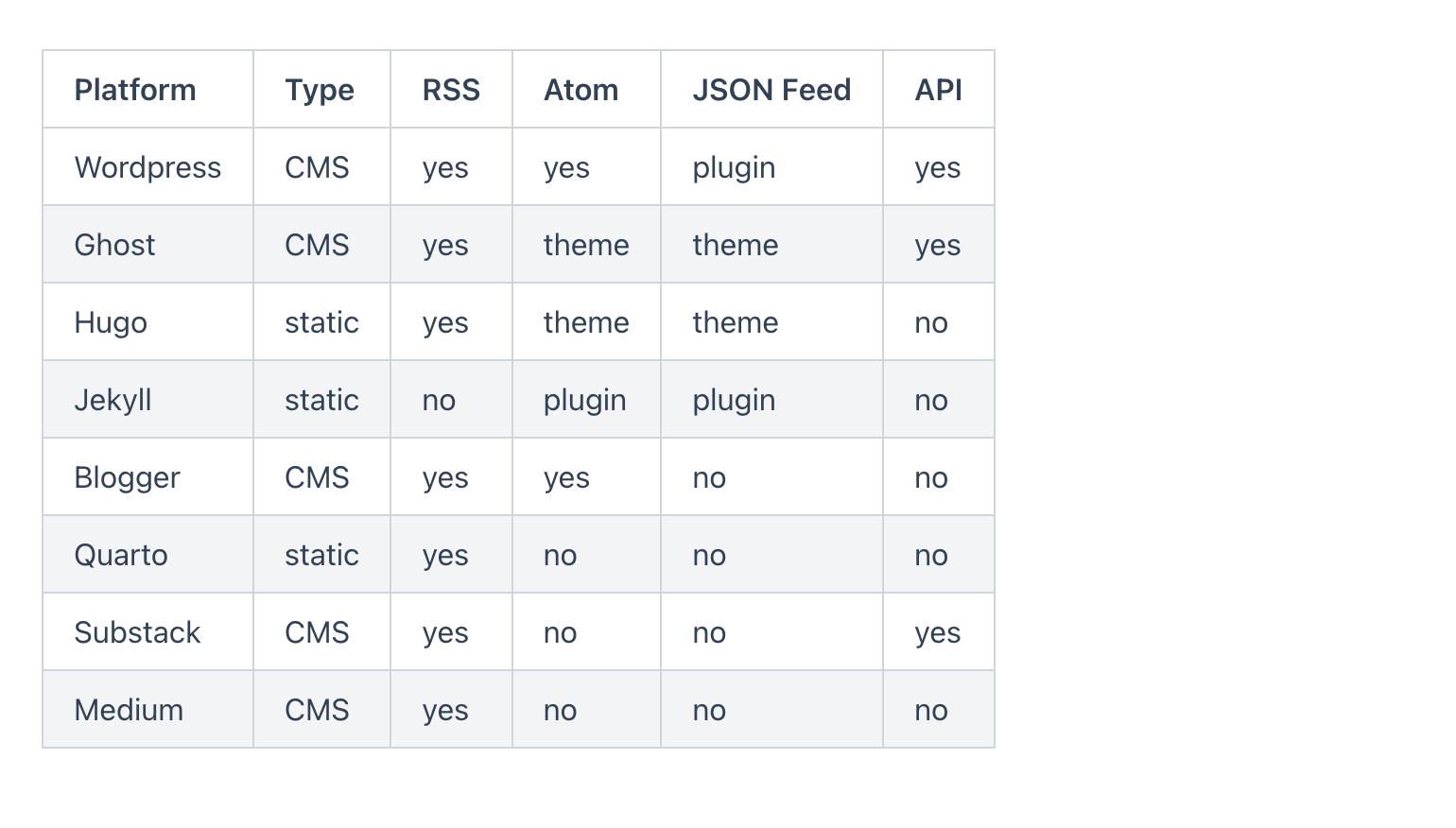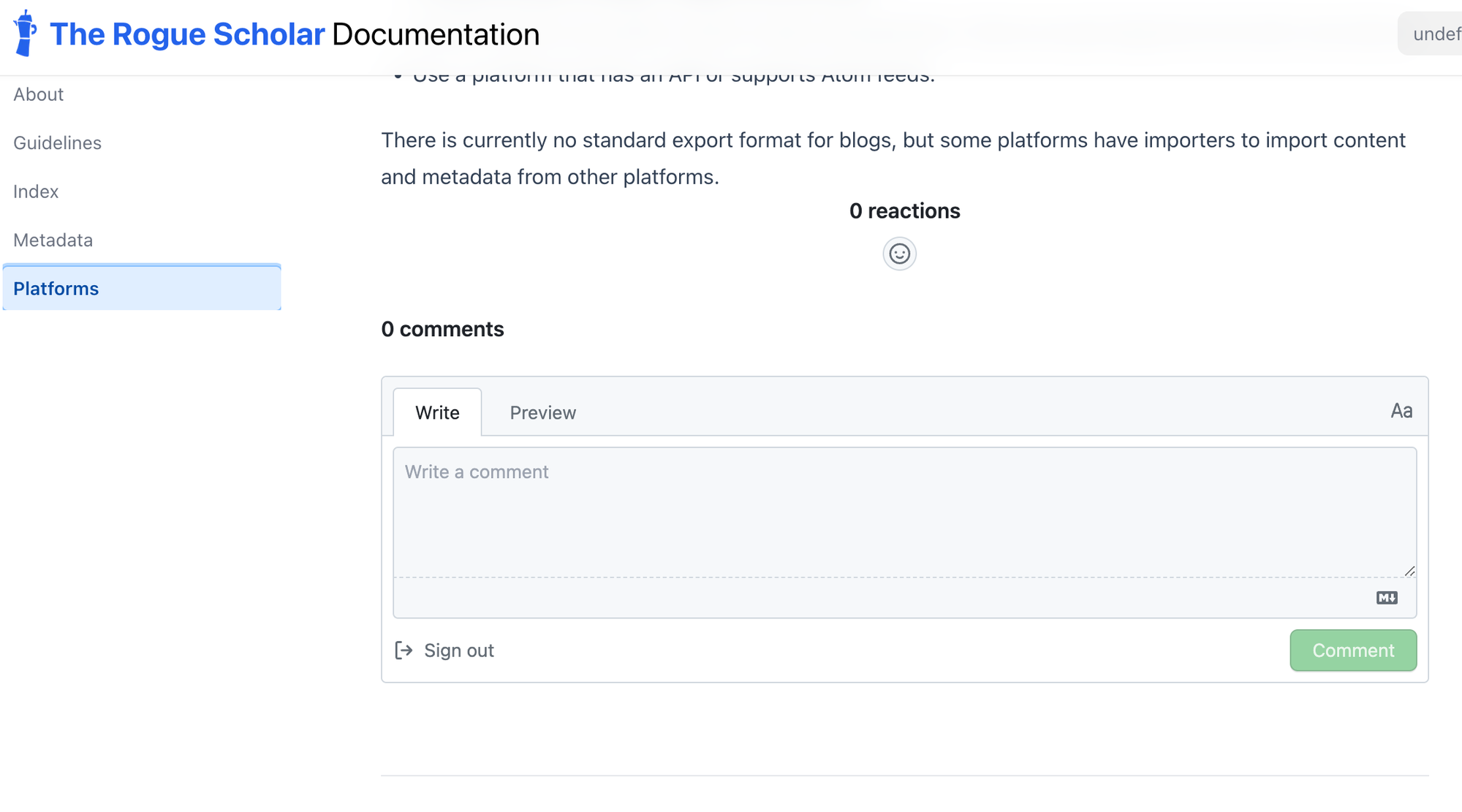Shortly following an update earlier this week, the Rogue Scholar science blog archive has updated or added two features today: better documentation and new comments.
Documentation
The Rogue Scholar documentation site was launched with the service but hasn't seen any updates in several months. Today I updated the platforms page, explaining what blogging platforms are used by the blogs participating in Rogue Scholar and how they are integrated. A new table highlights the most important features with regards to blog aggregation of the most popular eight platforms:

In the coming months, the Rogue Scholar documentation will see regular updates, based on the lessons learned running Rogue Scholar and two blogs – this blog (Ghost) and the Syldavia Gazette (Quarto). The next update will go into more detail about recommendations on how to configure a Wordpress blog (the most popular platform, used by currently 25 blogs on Rogue Scholar) for scholarly content. You can help improve the documentation – which is hosted on GitHub – via the edit links that are on every page.
Comments
Asking questions, reporting bugs, or giving other kinds of feedback was always possible via email, Mastodon, or Discord. Today you can also add comments directly on the Rogue Scholar website, powered by GitHub Discussions and Giscus. Commenting requires signing in with a GitHub account, but reading comments doesn't require authentication. Comments are available on the Posts, Blogs, About, and individual blog pages, and on the updated documentation site.

No comments are available for individual blog posts, as this is the responsibility of the respective blog. As the comments are powered by GitHub Discussions, you can also see them here. You can of course continue the discussion on Mastodon (please follow the Rogue Scholar Mastodon account), or use email for sensitive or personal discussions. The Rogue Scholar Discord server will be shut down at the end of 2023 (December 31). Discord is a nice service, but not made for public discussions.
References
- Fenner, M. (2023). Rogue Scholar updates: GUIDs and fields of science. https://doi.org/10.53731/fy5gh-g0w69


